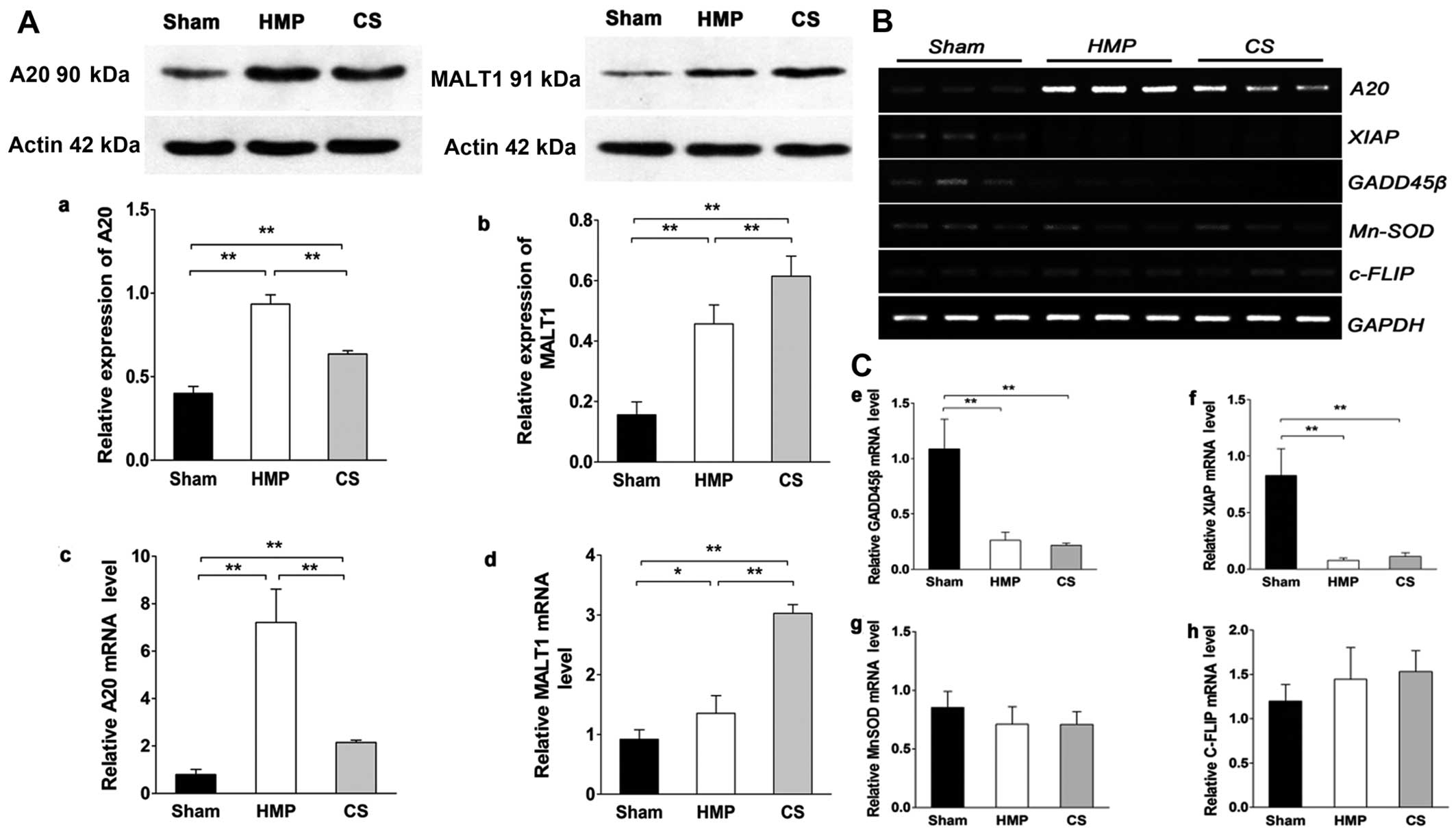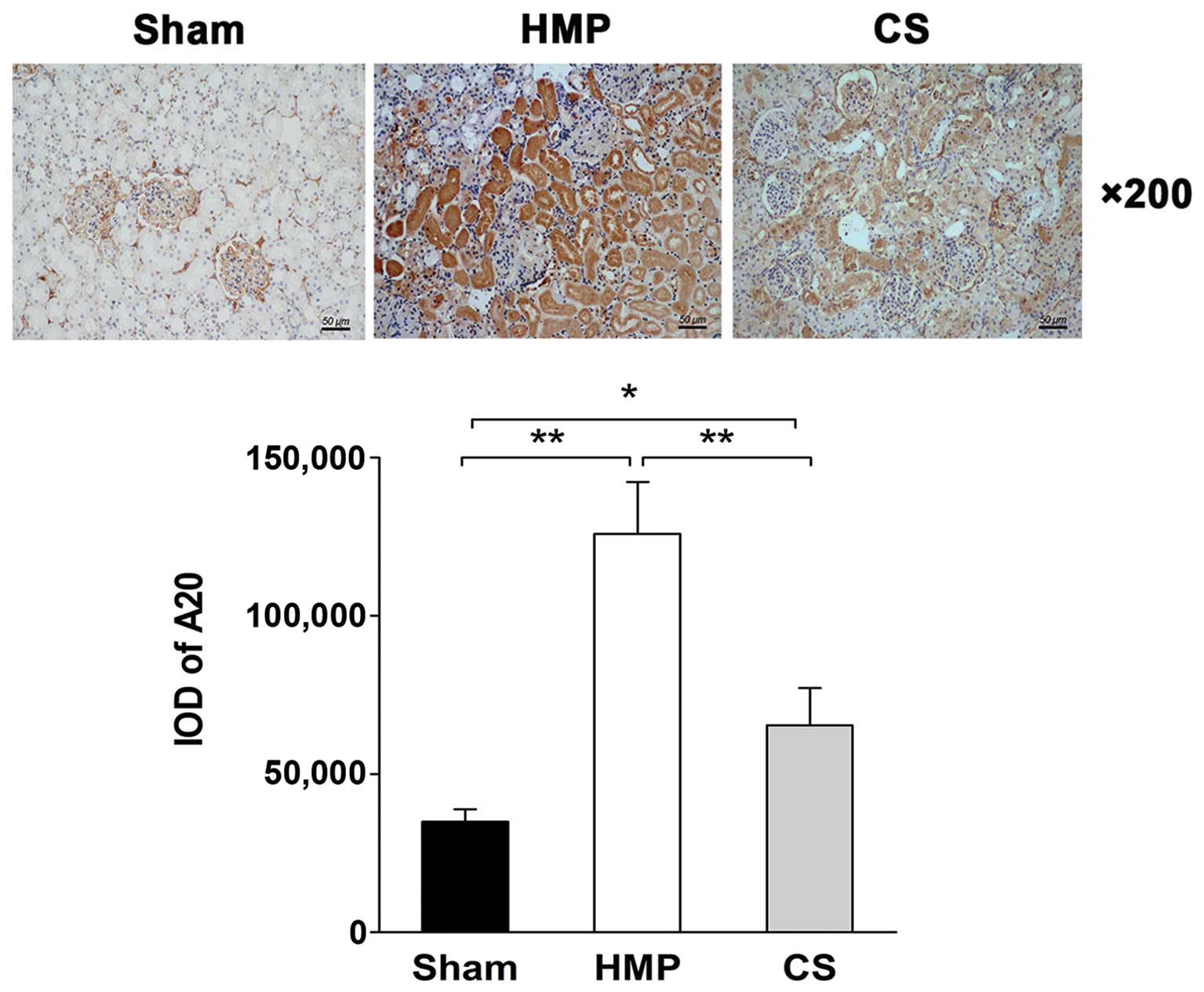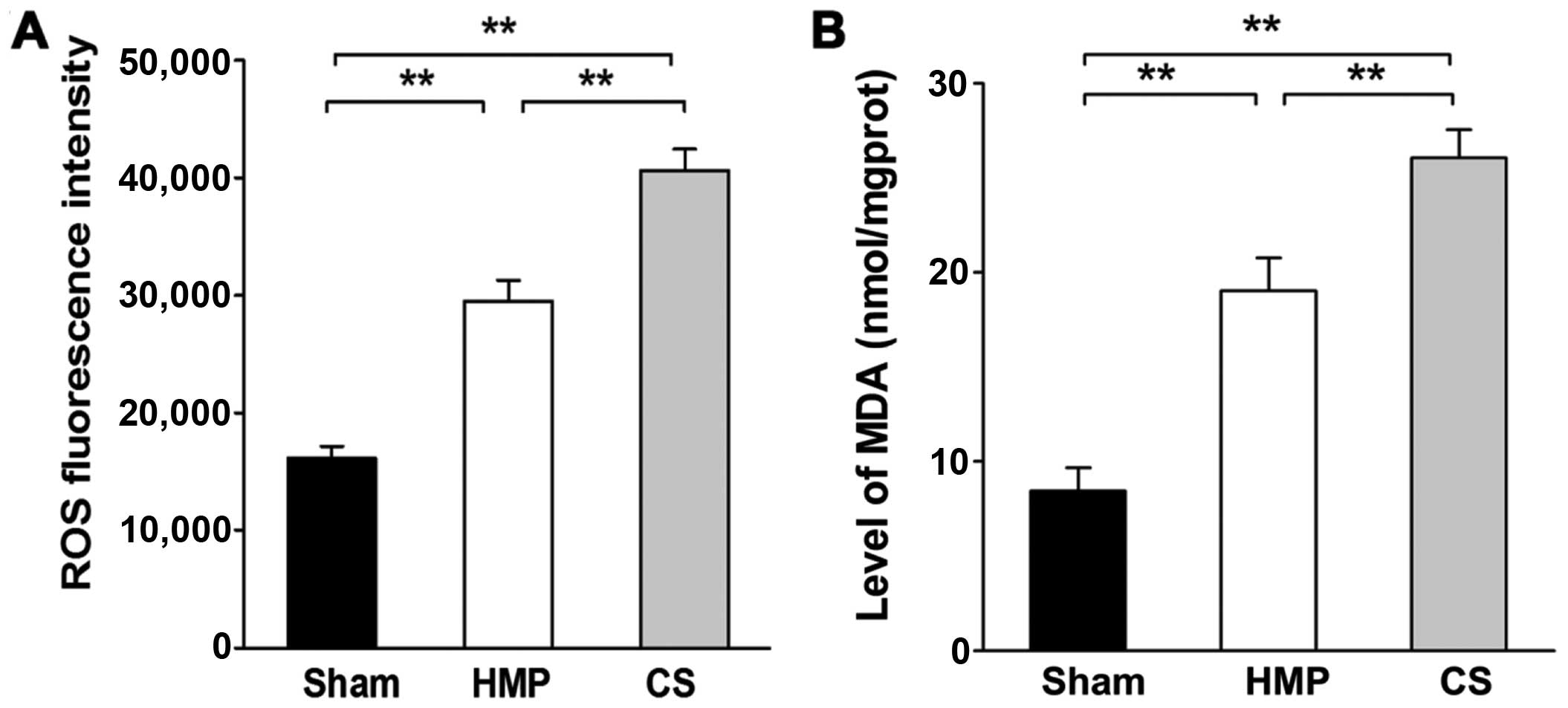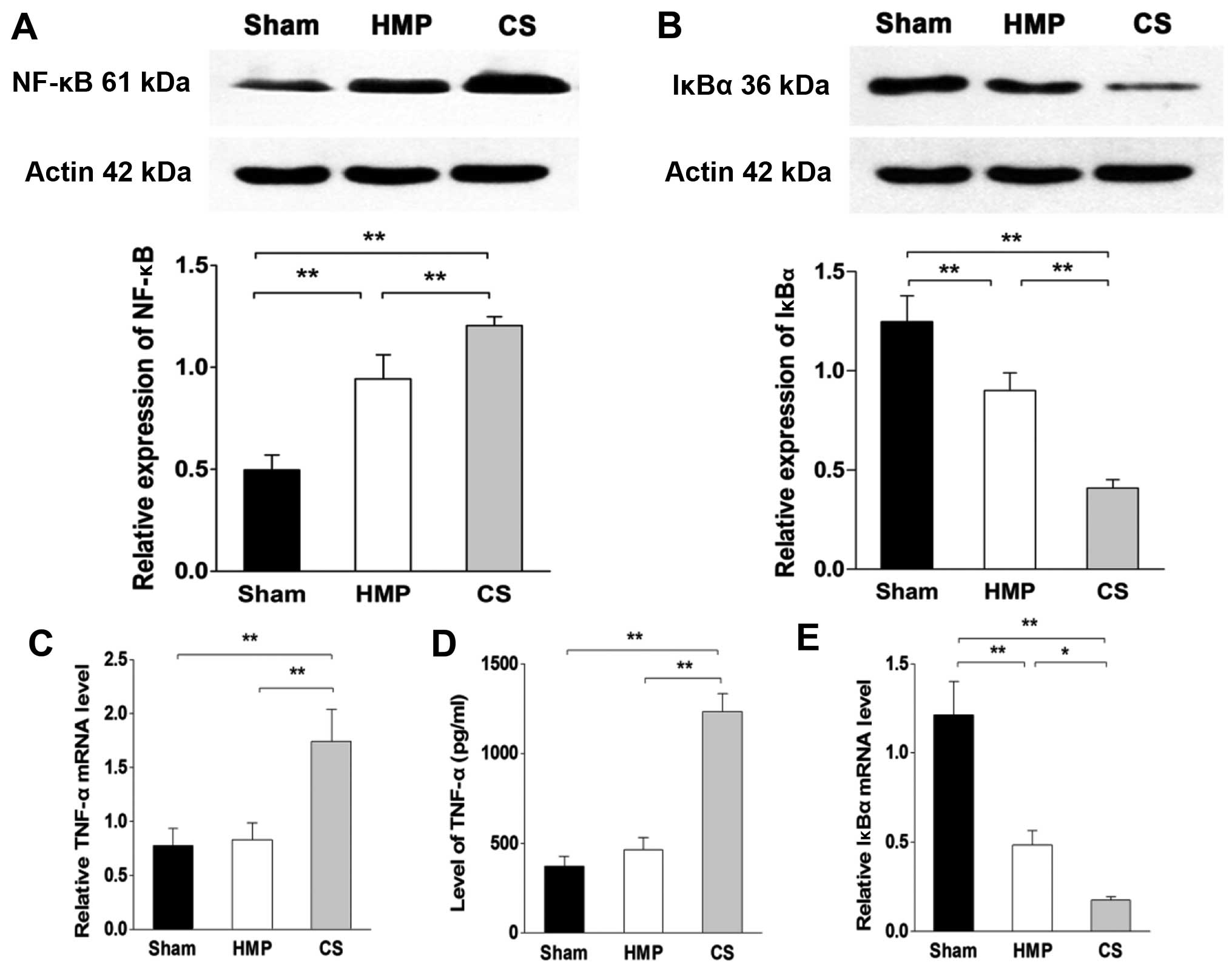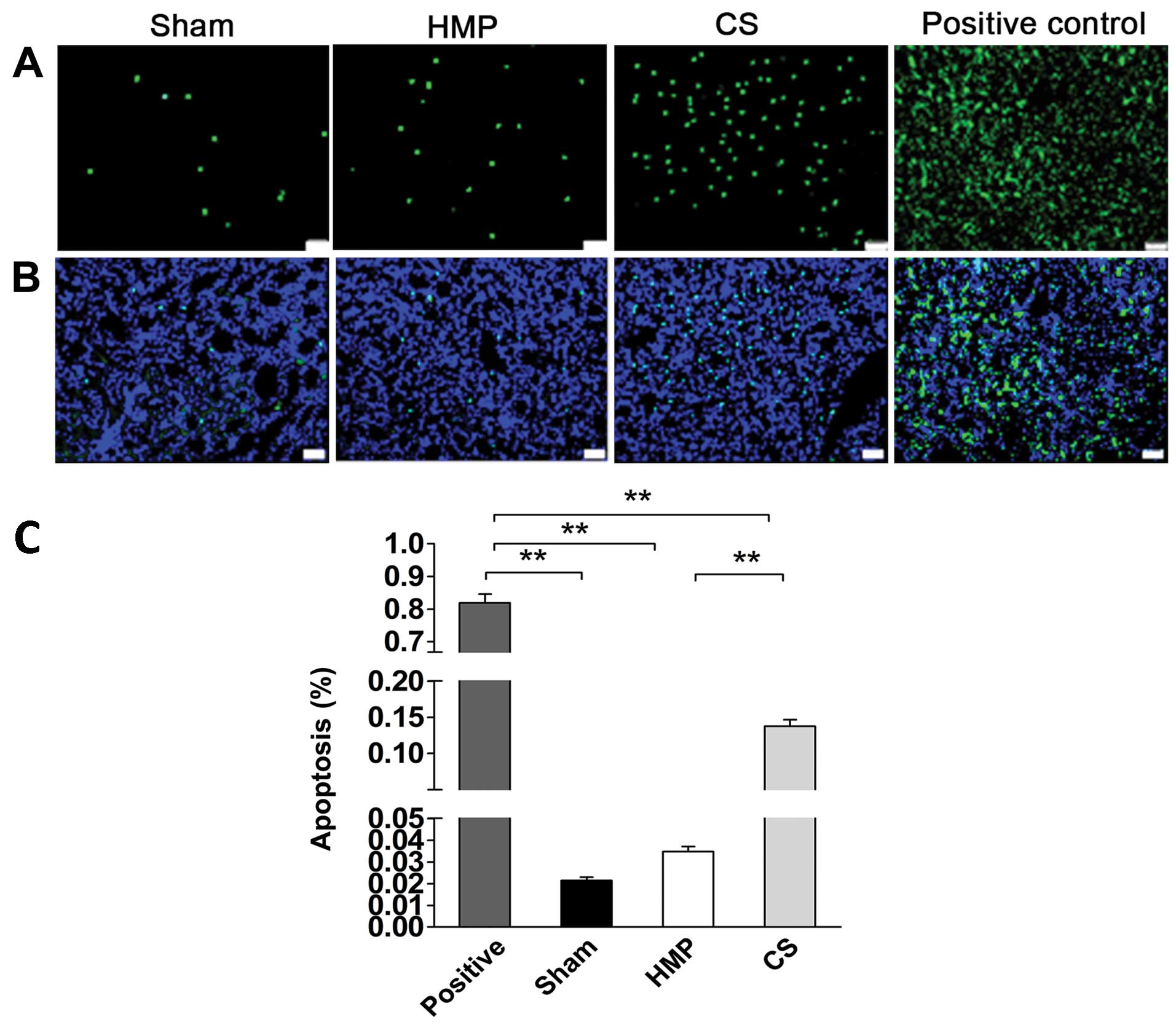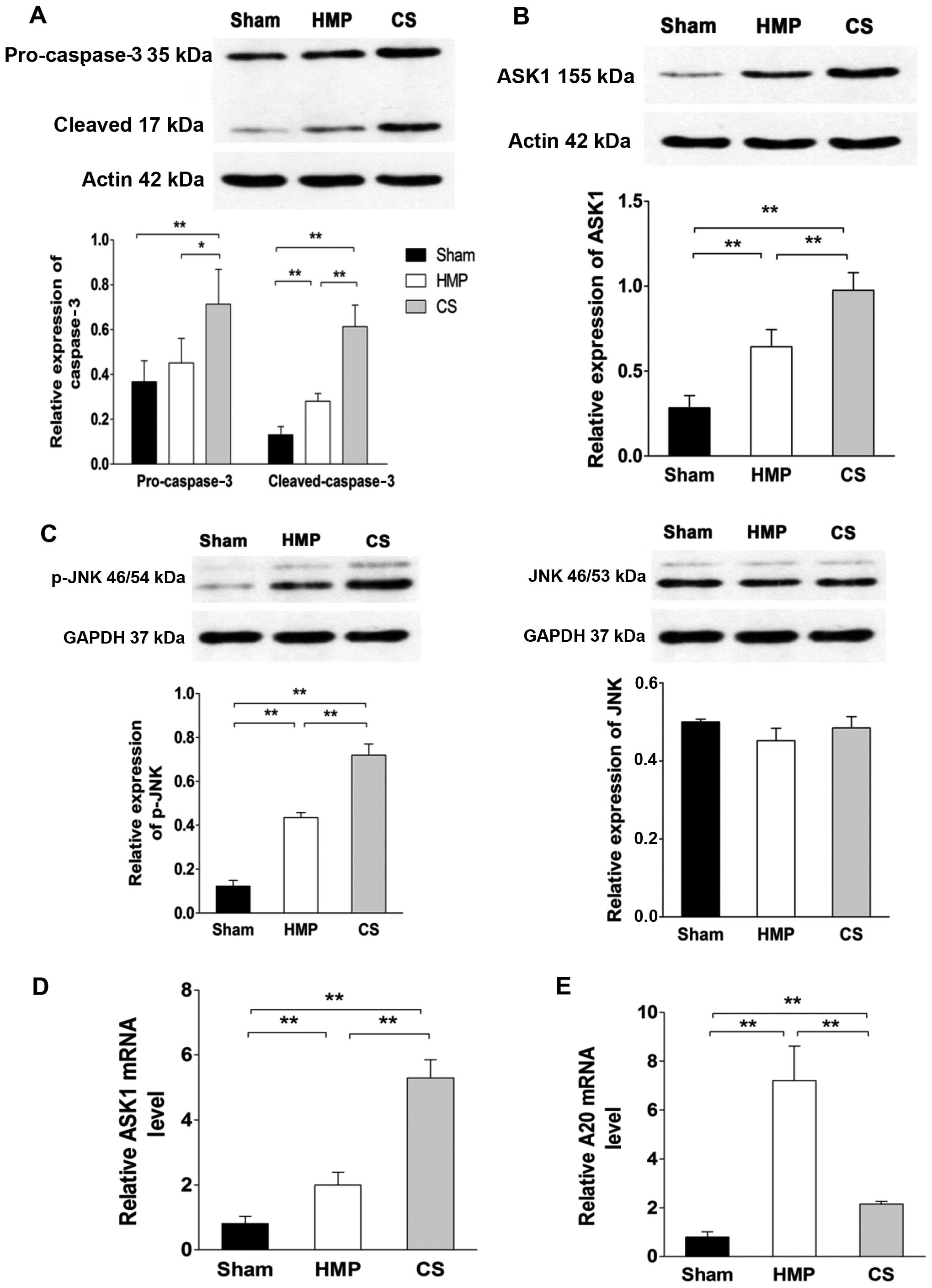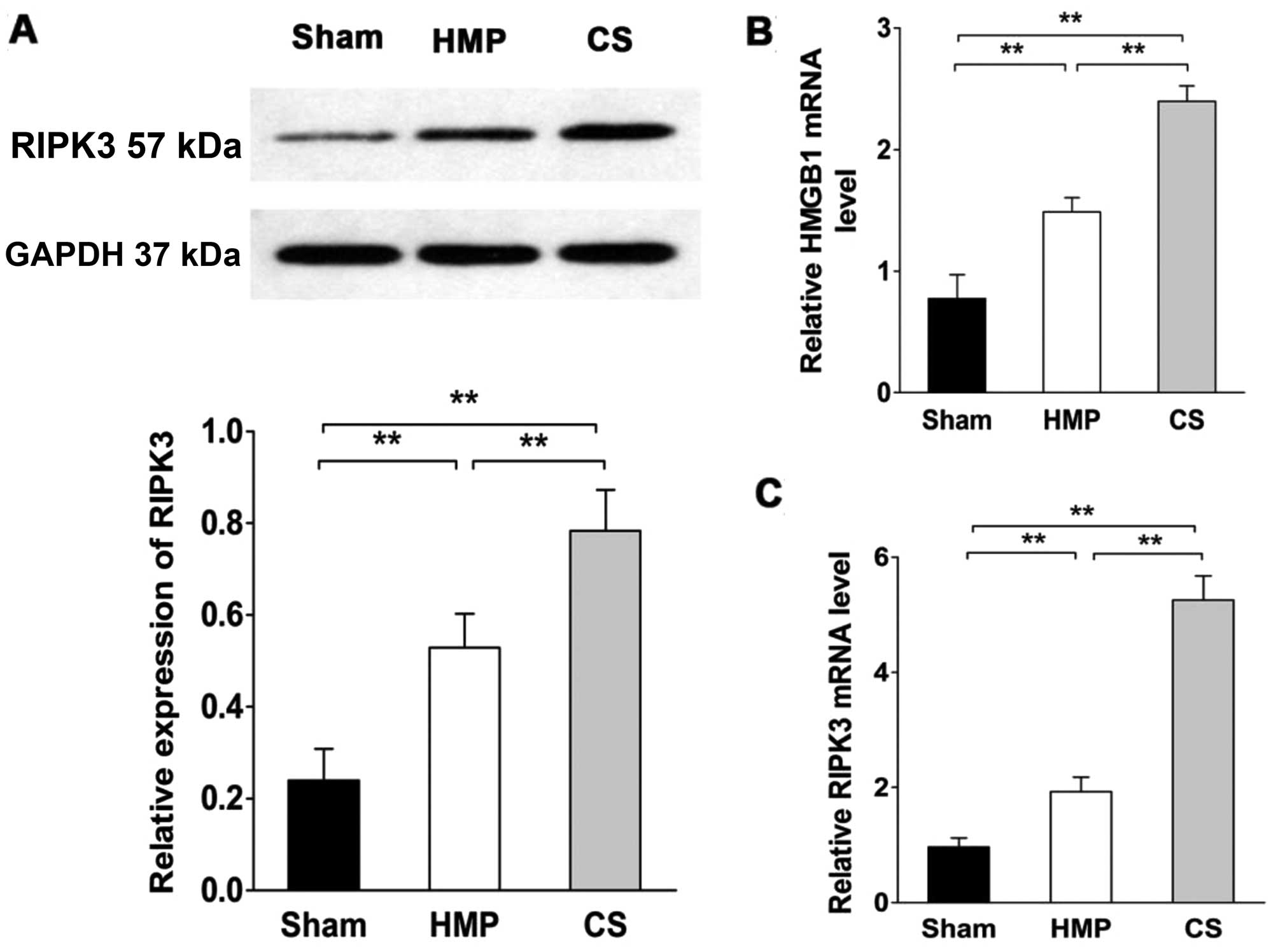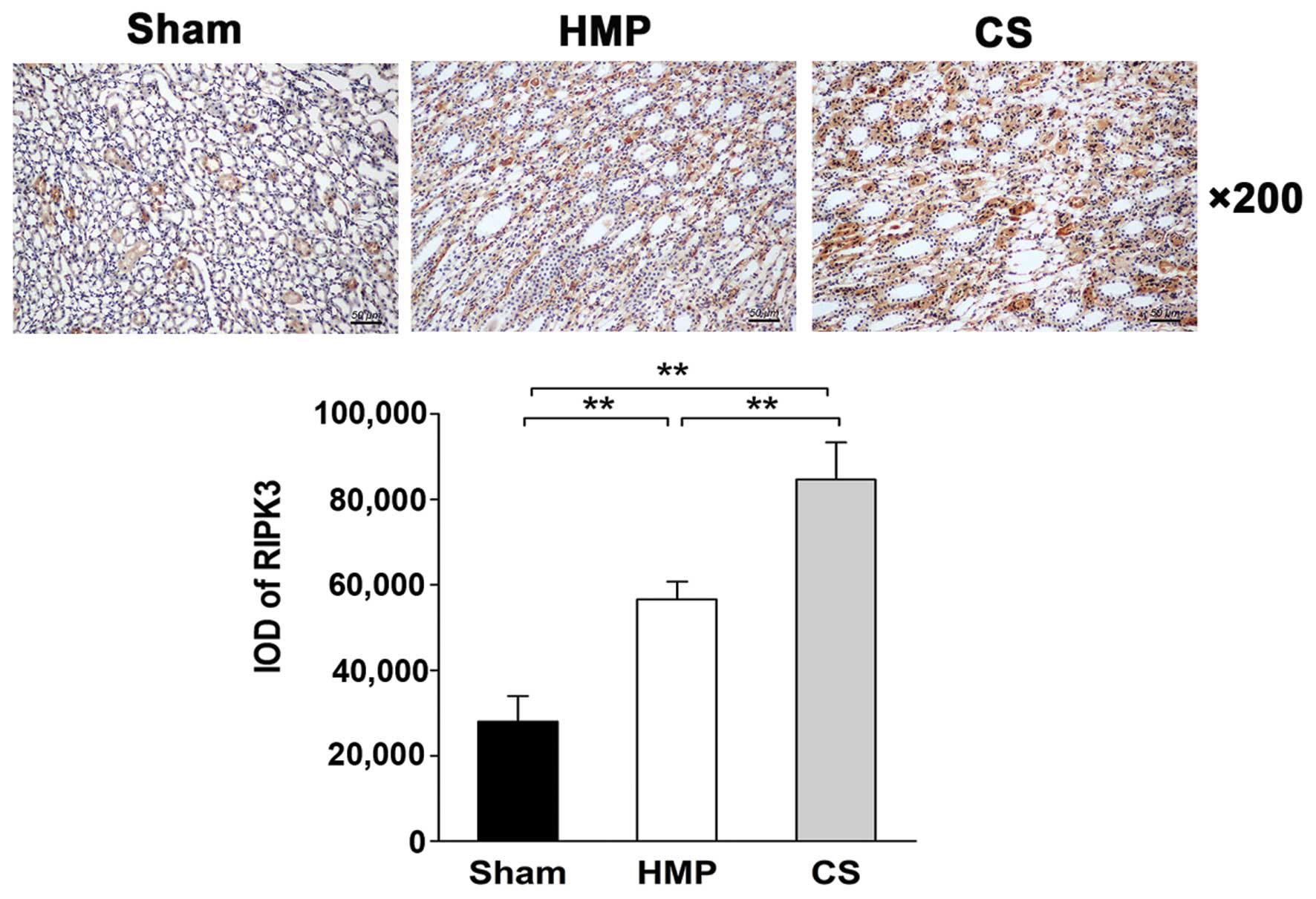|
1
|
Wolfe RA, Ashby VB, Milford EL, Ojo AO,
Ettenger RE, Agodoa LY, Held PJ and Port FK: Comparison of
mortality in all patients on dialysis, patients on dialysis
awaiting transplantation, and recipients of a first cadaveric
transplant. N Engl J Med. 341:1725–1730. 1999. View Article : Google Scholar : PubMed/NCBI
|
|
2
|
Nicholson ML, Metcalfe MS, White SA,
Waller JR, Doughman TM, Horsburgh T, Feehally J, Carr SJ and Veitch
PS: A comparison of the results of renal transplantation from
non-heart-beating, conventional cadaveric, and living donors.
Kidney Int. 58:2585–2591. 2000. View Article : Google Scholar : PubMed/NCBI
|
|
3
|
Perico N, Cattaneo D, Sayegh MH and
Remuzzi G: Delayed graft function in kidney transplantation.
Lancet. 364:1814–1827. 2004. View Article : Google Scholar : PubMed/NCBI
|
|
4
|
Curci C, Castellano G, Stasi A, Divella C,
Loverre A, Gigante M, Simone S, Cariello M, Montinaro V, Lucarelli
G, et al: Endothelial-to-mesenchymal transition and renal fibrosis
in ischaemia/reperfusion injury are mediated by complement
anaphylatoxins and Akt pathway. Nephrol Dial Transplant.
29:799–808. 2014. View Article : Google Scholar : PubMed/NCBI
|
|
5
|
Gueler F, Gwinner W, Schwarz A and Haller
H: Long-term effects of acute ischemia and reperfusion injury.
Kidney Int. 66:523–527. 2004. View Article : Google Scholar : PubMed/NCBI
|
|
6
|
Kosieradzki M and Rowiński W:
Ischemia/reperfusion injury in kidney transplantation: mechanisms
and prevention. Transplant Proc. 40:3279–3288. 2008. View Article : Google Scholar : PubMed/NCBI
|
|
7
|
St Peter SD, Imber CJ and Friend PJ: Liver
and kidney preservation by perfusion. Lancet. 359:604–613. 2002.
View Article : Google Scholar : PubMed/NCBI
|
|
8
|
Moers C, Smits JM, Maathuis MH, Treckmann
J, van Gelder F, Napieralski BP, van Kasterop-Kutz M, van der Heide
JJ, Squifflet JP, van Heurn E, et al: Machine perfusion or cold
storage in deceased-donor kidney transplantation. N Engl J Med.
360:7–19. 2009. View Article : Google Scholar : PubMed/NCBI
|
|
9
|
Moers C, Pirenne J, Paul A and Ploeg RJ;
Machine Preservation Trial Study Group: Machine perfusion or cold
storage in deceased-donor kidney transplantation. N Engl J Med.
366:770–771. 2012. View Article : Google Scholar : PubMed/NCBI
|
|
10
|
Zhang Y, Fu Z, Zhong Z, Wang R, Hu L,
Xiong Y, Wang Y and Ye Q: Hypothermic machine perfusion decreases
renal cell apoptosis during ischemia/reperfusion injury via the
Ezrin/AKT pathway. Artif Organs. 40:129–135. 2016. View Article : Google Scholar
|
|
11
|
Schold JD, Kaplan B, Howard RJ, Reed AI,
Foley DP and Meier-Kriesche HU: Are we frozen in time? Analysis of
the utilization and efficacy of pulsatile perfusion in renal
transplantation. Am J Transplant. 5:1681–1688. 2005. View Article : Google Scholar : PubMed/NCBI
|
|
12
|
Eddy AA: Progression in chronic kidney
disease. Adv Chronic Kidney Dis. 12:353–365. 2005. View Article : Google Scholar : PubMed/NCBI
|
|
13
|
Akcay A, Nguyen Q and Edelstein CL:
Mediators of inflammation in acute kidney injury. Mediators
Inflamm. 2009:1370722009. View Article : Google Scholar
|
|
14
|
Kono H, Nakagawa K, Morita S, Shinoda K,
Mizuno R, Kikuchi E, Miyajima A, Umezawa K and Oya M: Effect of a
novel nuclear factor-κB activation inhibitor on renal
ischemia-reperfusion injury. Transplantation. 96:863–870. 2013.
View Article : Google Scholar : PubMed/NCBI
|
|
15
|
Latanich CA and Toledo-Pereyra LH:
Searching for NF-kappaB-based treatments of ischemia reperfusion
injury. J Invest Surg. 22:301–315. 2009. View Article : Google Scholar : PubMed/NCBI
|
|
16
|
Cao CC, Ding XQ, Ou ZL, Liu CF, Li P, Wang
L and Zhu CF: In vivo transfection of NF-kappaB decoy
oligodeoxynucleotides attenuate renal ischemia/reperfusion injury
in rats. Kidney Int. 65:834–845. 2004. View Article : Google Scholar : PubMed/NCBI
|
|
17
|
Hatada EN, Krappmann D and Scheidereit C:
NF-kappaB and the innate immune response. Curr Opin Immunol.
12:52–58. 2000. View Article : Google Scholar : PubMed/NCBI
|
|
18
|
Daemen MA, van't Veer C, Denecker G,
Heemskerk VH, Wolfs TG, Clauss M, Vandenabeele P and Buurman WA:
Inhibition of apoptosis induced by ischemia-reperfusion prevents
inflammation. J Clin Invest. 104:541–549. 1999. View Article : Google Scholar : PubMed/NCBI
|
|
19
|
Linkermann A and Green DR: Necroptosis. N
Engl J Med. 370:455–465. 2014. View Article : Google Scholar : PubMed/NCBI
|
|
20
|
Kaushal GP, Basnakian AG and Shah SV:
Apoptotic pathways in ischemic acute renal failure. Kidney Int.
66:500–506. 2004. View Article : Google Scholar : PubMed/NCBI
|
|
21
|
Kaushal GP, Kaushal V, Hong X and Shah SV:
Role and regulation of activation of caspases in cisplatin-induced
injury to renal tubular epithelial cells. Kidney Int. 60:1726–1736.
2001. View Article : Google Scholar : PubMed/NCBI
|
|
22
|
Lau A, Wang S, Jiang J, Haig A, Pavlosky
A, Linkermann A, Zhang ZX and Jevnikar AM: RIPK3-mediated
necroptosis promotes donor kidney inflammatory injury and reduces
allograft survival. Am J Transplant. 13:2805–2818. 2013. View Article : Google Scholar : PubMed/NCBI
|
|
23
|
Opipari AW Jr, Boguski MS and Dixit VM:
The A20 cDNA induced by tumor necrosis factor alpha encodes a novel
type of zinc finger protein. J Biol Chem. 265:14705–14708.
1990.PubMed/NCBI
|
|
24
|
Lee EG, Boone DL, Chai S, Libby SL, Chien
M, Lodolce JP and Ma A: Failure to regulate TNF-induced NF-kappaB
and cell death responses in A20-deficient mice. Science.
289:2350–2354. 2000. View Article : Google Scholar : PubMed/NCBI
|
|
25
|
Boone DL, Turer EE, Lee EG, Ahmad RC,
Wheeler MT, Tsui C, Hurley P, Chien M, Chai S, Hitotsumatsu O, et
al: The ubiquitin-modifying enzyme A20 is required for termination
of Toll-like receptor responses. Nat Immunol. 5:1052–1060. 2004.
View Article : Google Scholar : PubMed/NCBI
|
|
26
|
Catrysse L, Vereecke L, Beyaert R and van
Loo G: A20 in inflammation and autoimmunity. Trends Immunol.
35:22–31. 2014. View Article : Google Scholar
|
|
27
|
Ma A and Malynn BA: A20: Linking a complex
regulator of ubiquitylation to immunity and human disease. Nat Rev
Immunol. 12:774–785. 2012. View
Article : Google Scholar : PubMed/NCBI
|
|
28
|
Daniel S, Arvelo MB, Patel VI, Longo CR,
Shrikhande G, Shukri T, Mahiou J, Sun DW, Mottley C, Grey ST and
Ferran C: A20 protects endothelial cells from TNF-, Fas-, and
NK-mediated cell death by inhibiting caspase 8 activation. Blood.
104:2376–2384. 2004. View Article : Google Scholar : PubMed/NCBI
|
|
29
|
Kunter U, Daniel S, Arvelo MB, Choi J,
Shukri T, Patel VI, Longo CR, Scali ST, Shrikhande G, Rocha E, et
al: Combined expression of A1 and A20 achieves optimal protection
of renal proximal tubular epithelial cells. Kidney Int.
68:1520–1532. 2005. View Article : Google Scholar : PubMed/NCBI
|
|
30
|
Grey ST, Longo C, Shukri T, Patel VI,
Csizmadia E, Daniel S, Arvelo MB, Tchipashvili V and Ferran C:
Genetic engineering of a suboptimal islet graft with A20 preserves
beta cell mass and function. J Immunol. 170:6250–6256. 2003.
View Article : Google Scholar : PubMed/NCBI
|
|
31
|
Coornaert B, Carpentier I and Beyaert R:
A20: Central gatekeeper in inflammation and immunity. J Biol Chem.
284:8217–8221. 2009. View Article : Google Scholar :
|
|
32
|
Onizawa M, Oshima S, Schulze-Topphoff U,
Oses-Prieto JA, Lu T, Tavares R, Prodhomme T, Duong B, Whang MI,
Advincula R, et al: The ubiquitin-modifying enzyme A20 restricts
ubiquitination of the kinase RIPK3 and protects cells from
necroptosis. Nat Immunol. 16:618–627. 2015. View Article : Google Scholar : PubMed/NCBI
|
|
33
|
Bodonyi-Kovacs G, Strom TB and Putheti P:
A20 - a biomarker of allograft outcome: a showcase in kidney
transplantation. Adv Exp Med Biol. 809:103–116. 2014. View Article : Google Scholar
|
|
34
|
Coornaert B, Baens M, Heyninck K, Bekaert
T, Haegman M, Staal J, Sun L, Chen ZJ, Marynen P and Beyaert R: T
cell antigen receptor stimulation induces MALT1
paracaspase-mediated cleavage of the NF-kappaB inhibitor A20. Nat
Immunol. 9:263–271. 2008. View
Article : Google Scholar : PubMed/NCBI
|
|
35
|
De Smaele E, Zazzeroni F, Papa S, Nguyen
DU, Jin R, Jones J, Cong R and Franzoso G: Induction of gadd45beta
by NF-kappaB downregulates pro-apoptotic JNK signalling. Nature.
414:308–313. 2001. View Article : Google Scholar : PubMed/NCBI
|
|
36
|
Tang G, Minemoto Y, Dibling B, Purcell NH,
Li Z, Karin M and Lin A: Inhibition of JNK activation through
NF-kappaB target genes. Nature. 414:313–317. 2001. View Article : Google Scholar : PubMed/NCBI
|
|
37
|
Chang L, Kamata H, Solinas G, Luo JL,
Maeda S, Venuprasad K, Liu YC and Karin M: The E3 ubiquitin ligase
itch couples JNK activation to TNFalpha-induced cell death by
inducing c-FLIP(L) turnover. Cell. 124:601–613. 2006. View Article : Google Scholar : PubMed/NCBI
|
|
38
|
Vanden Berghe T, Grootjans S, Goossens V,
Dondelinger Y, Krysko DV, Takahashi N and Vandenabeele P:
Determination of apoptotic and necrotic cell death in vitro and in
vivo. Methods. 61:117–129. 2013. View Article : Google Scholar : PubMed/NCBI
|
|
39
|
Barba J, Zudaire JJ, Robles JE, Rosell D,
Berian JM and Pascual I: Complications of kidney transplantation
with grafts from expanded criteria donors. World J Urol.
31:893–900. 2013. View Article : Google Scholar
|
|
40
|
McLaren AJ, Jassem W, Gray DW, Fuggle SV,
Welsh KI and Morris PJ: Delayed graft function: risk factors and
the relative effects of early function and acute rejection on
long-term survival in cadaveric renal transplantation. Clin
Transplant. 13:266–272. 1999. View Article : Google Scholar : PubMed/NCBI
|
|
41
|
Padanilam BJ: Cell death induced by acute
renal injury: a perspective on the contributions of apoptosis and
necrosis. Am J Physiol Renal Physiol. 284:F608–F627. 2003.
View Article : Google Scholar : PubMed/NCBI
|
|
42
|
Bonegio R and Lieberthal W: Role of
apoptosis in the pathogenesis of acute renal failure. Curr Opin
Nephrol Hypertens. 11:301–308. 2002. View Article : Google Scholar : PubMed/NCBI
|
|
43
|
Bonventre JV and Zuk A: Ischemic acute
renal failure: an inflammatory disease? Kidney Int. 66:480–485.
2004. View Article : Google Scholar : PubMed/NCBI
|
|
44
|
Linkermann A, Bräsen JH, Himmerkus N, Liu
S, Huber TB, Kunzendorf U and Krautwald S: Rip1
(receptor-interacting protein kinase 1) mediates necroptosis and
contributes to renal ischemia/reperfusion injury. Kidney Int.
81:751–761. 2012. View Article : Google Scholar : PubMed/NCBI
|
|
45
|
Toronyi E: Role of apoptosis in the kidney
after reperfusion. Orv Hetil. 149:305–315. 2008.In Hungarian.
View Article : Google Scholar : PubMed/NCBI
|
|
46
|
da Silva CG, Maccariello ER, Wilson SW,
Putheti P, Daniel S, Damrauer SM, Peterson CR, Siracuse JJ,
Kaczmarek E and Ferran C: Hepatocyte growth factor preferentially
activates the anti-inflammatory arm of NF-κB signaling to induce
A20 and protect renal proximal tubular epithelial cells from
inflammation. J Cell Physiol. 227:1382–1390. 2012. View Article : Google Scholar :
|
|
47
|
Rius J, Guma M, Schachtrup C, Akassoglou
K, Zinkernagel AS, Nizet V, Johnson RS, Haddad GG and Karin M:
NF-kappaB links innate immunity to the hypoxic response through
transcriptional regulation of HIF-1alpha. Nature. 453:807–811.
2008. View Article : Google Scholar : PubMed/NCBI
|
|
48
|
Li C and Jackson RM: Reactive species
mechanisms of cellular hypoxia-reoxygenation injury. Am J Physiol
Cell Physiol. 282:C227–C241. 2002. View Article : Google Scholar : PubMed/NCBI
|
|
49
|
Grey ST, Arvelo MB, Hasenkamp W, Bach FH
and Ferran C: A20 inhibits cytokine-induced apoptosis and nuclear
factor kappaB-dependent gene activation in islets. J Exp Med.
190:1135–1146. 1999. View Article : Google Scholar : PubMed/NCBI
|
|
50
|
Arvelo MB, Cooper JT, Longo C, Daniel S,
Grey ST, Mahiou J, Czismadia E, Abu-Jawdeh G and Ferran C: A20
protects mice from D-galactosamine/lipopolysaccharide acute toxic
lethal hepatitis. Hepatology. 35:535–543. 2002. View Article : Google Scholar : PubMed/NCBI
|
|
51
|
Lutz J, Luong A, Strobl M, Deng M, Huang
H, Anton M, Zakkar M, Enesa K, Chaudhury H, Haskard DO, et al: The
A20 gene protects kidneys from ischaemia/reperfusion injury by
suppressing pro-inflammatory activation. J Mol Med Berl.
86:1329–1339. 2008. View Article : Google Scholar : PubMed/NCBI
|
|
52
|
Opipari AW Jr, Hu HM, Yabkowitz R and
Dixit VM: The A20 zinc finger protein protects cells from tumor
necrosis factor cytotoxicity. J Biol Chem. 267:12424–12427.
1992.PubMed/NCBI
|
|
53
|
Hess S, Gottfried E, Smola H, Grunwald U,
Schuchmann M and Engelmann H: CD40 induces resistance to
TNF-mediated apoptosis in a fibroblast cell line. Eur J Immunol.
28:3594–3604. 1998. View Article : Google Scholar : PubMed/NCBI
|
|
54
|
Heyninck K, Denecker G, De Valck D, Fiers
W and Beyaert R: Inhibition of tumor necrosis factor-induced
necrotic cell death by the zinc finger protein A20. Anticancer Res.
19:2863–2868. 1999.
|
|
55
|
Lademann U, Kallunki T and Jäättelä M: A20
zinc finger protein inhibits TNF-induced apoptosis and stress
response early in the signaling cascades and independently of
binding to TRAF2 or 14-3-3 proteins. Cell Death Differ. 8:265–272.
2001. View Article : Google Scholar : PubMed/NCBI
|
|
56
|
Du C, Guan Q, Yin Z, Zhong R and Jevnikar
AM: IL-2-mediated apoptosis of kidney tubular epithelial cells is
regulated by the caspase-8 inhibitor c-FLIP. Kidney Int.
67:1397–1409. 2005. View Article : Google Scholar : PubMed/NCBI
|
|
57
|
Du C, Wang S, Diao H, Guan Q, Zhong R and
Jevnikar AM: Increasing resistance of tubular epithelial cells to
apoptosis by shRNA therapy ameliorates renal ischemia-reperfusion
injury. Am J Transplant. 6:2256–2267. 2006. View Article : Google Scholar : PubMed/NCBI
|
|
58
|
Won M, Park KA, Byun HS, Sohn KC, Kim YR,
Jeon J, Hong JH, Park J, Seok JH, Kim JM, et al: Novel
anti-apoptotic mechanism of A20 through targeting ASK1 to suppress
TNF-induced JNK activation. Cell Death Differ. 17:1830–1841. 2010.
View Article : Google Scholar : PubMed/NCBI
|
|
59
|
Nagamachi A, Nakata Y, Ueda T, Yamasaki N,
Ebihara Y, Tsuji K, Honda Z, Takubo K, Suda T, Oda H, et al:
Acquired deficiency of A20 results in rapid apoptosis, systemic
inflammation, and abnormal hematopoietic stem cell function. PLoS
One. 9:e874252014. View Article : Google Scholar : PubMed/NCBI
|
|
60
|
Zamzami N and Kroemer G: The mitochondrion
in apoptosis: how Pandora's box opens. Nat Rev Mol Cell Biol.
2:67–71. 2001. View Article : Google Scholar : PubMed/NCBI
|
|
61
|
Cho BB and Toledo-Pereyra LH:
Caspase-independent programmed cell death following ischemic
stroke. J Invest Surg. 21:141–147. 2008. View Article : Google Scholar : PubMed/NCBI
|
|
62
|
Peltz M, He TT, Adams GA IV, Koshy S,
Burgess SC, Chao RY, Meyer DM and Jessen ME: Perfusion preservation
maintains myocardial ATP levels and reduces apoptosis in an ex vivo
rat heart transplantation model. Surgery. 138:795–805. 2005.
View Article : Google Scholar : PubMed/NCBI
|
|
63
|
Galluzzi L, Vitale I, Abrams JM, Alnemri
ES, Baehrecke EH, Blagosklonny MV, Dawson TM, Dawson VL, El-Deiry
WS, Fulda S, et al: Molecular definitions of cell death
subroutines: Recommendations of the Nomenclature Committee on Cell
Death 2012. Cell Death Differ. 19:107–120. 2012. View Article : Google Scholar :
|
|
64
|
Chan FK: Fueling the flames: mammalian
programmed necrosis in inflammatory diseases. Cold Spring Harb
Perspect Biol. 4:a0088052012. View Article : Google Scholar : PubMed/NCBI
|
|
65
|
Kaczmarek A, Vandenabeele P and Krysko DV:
Necroptosis: the release of damage-associated molecular patterns
and its physiological relevance. Immunity. 38:209–223. 2013.
View Article : Google Scholar : PubMed/NCBI
|















